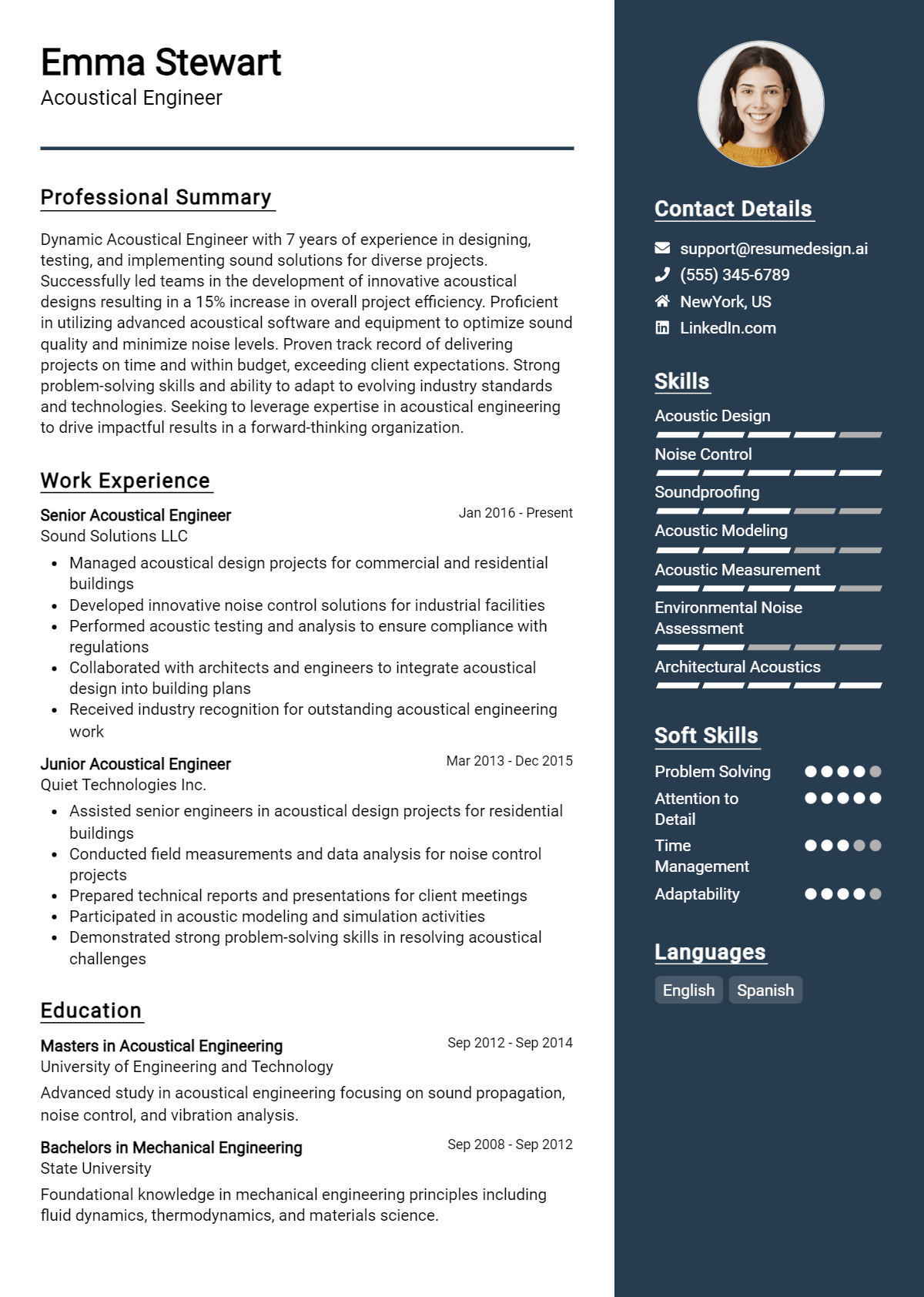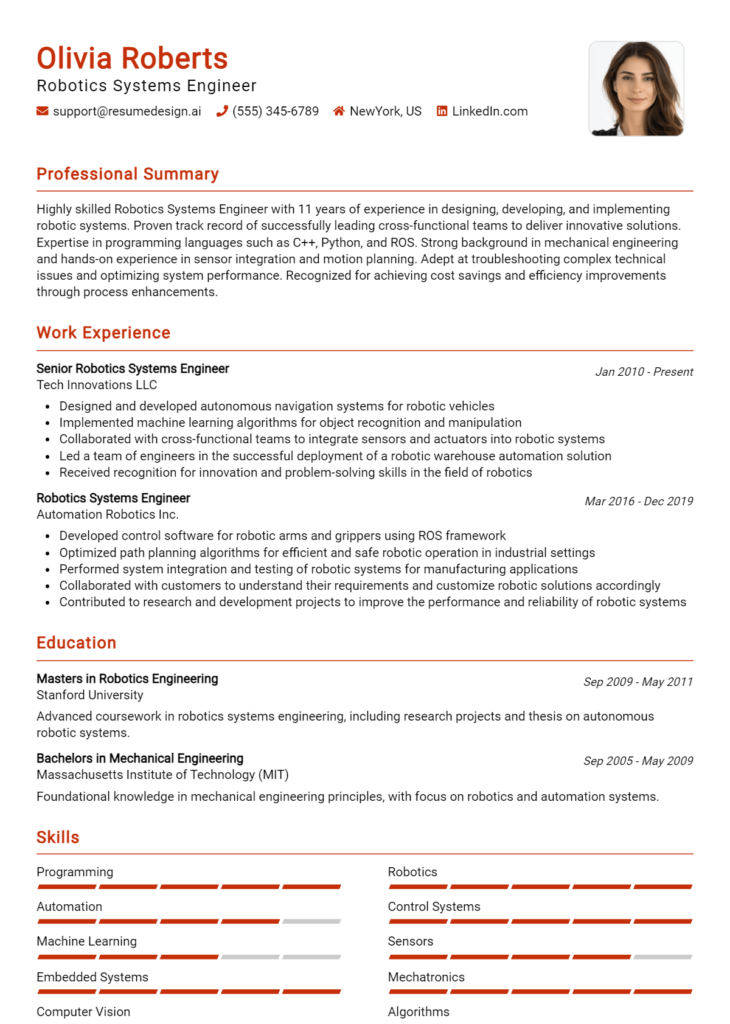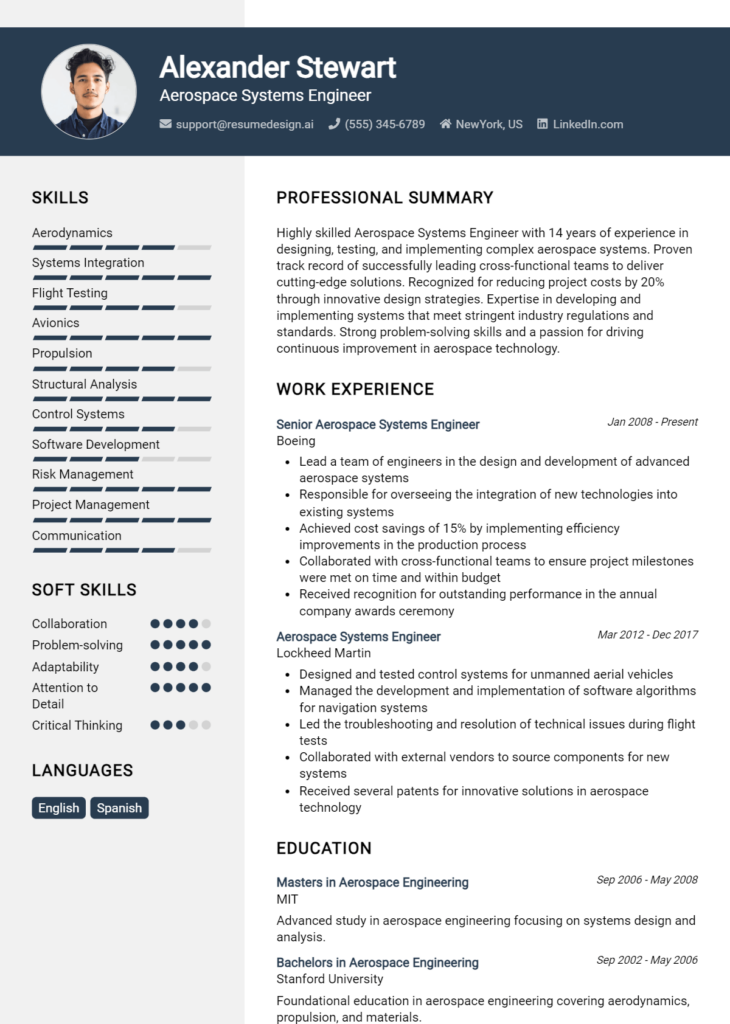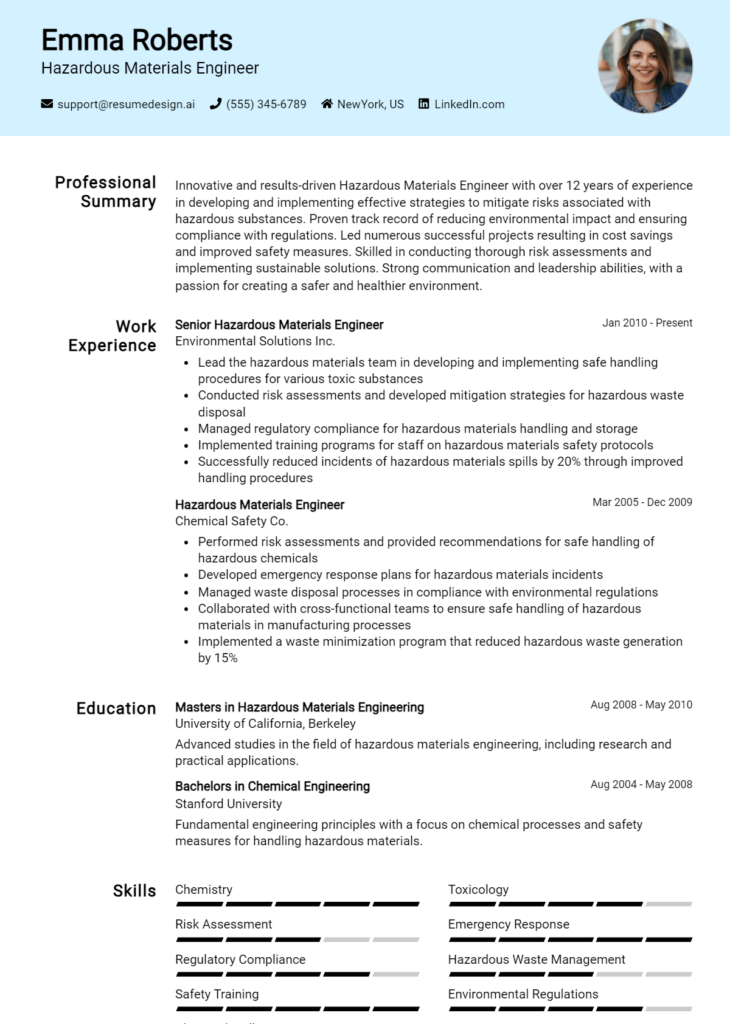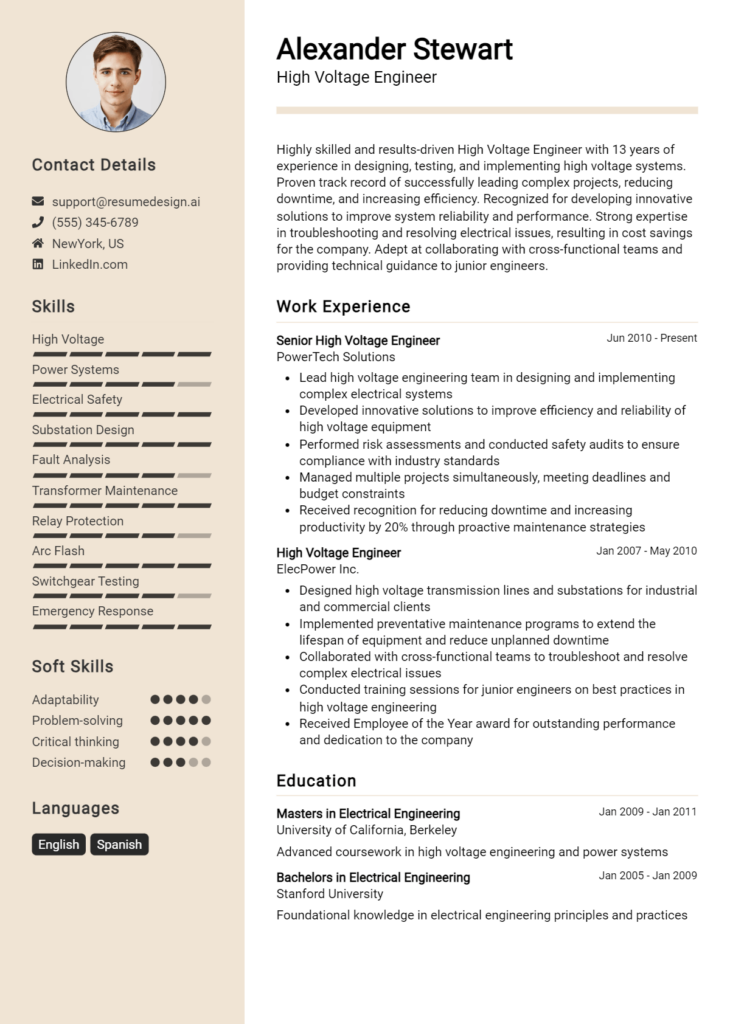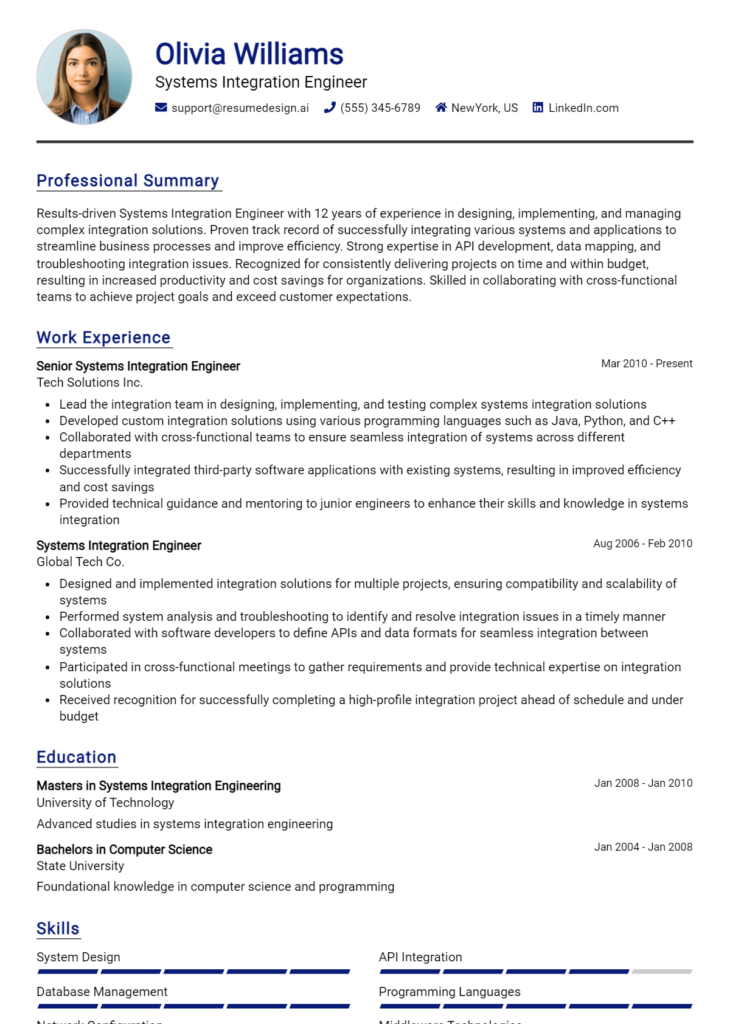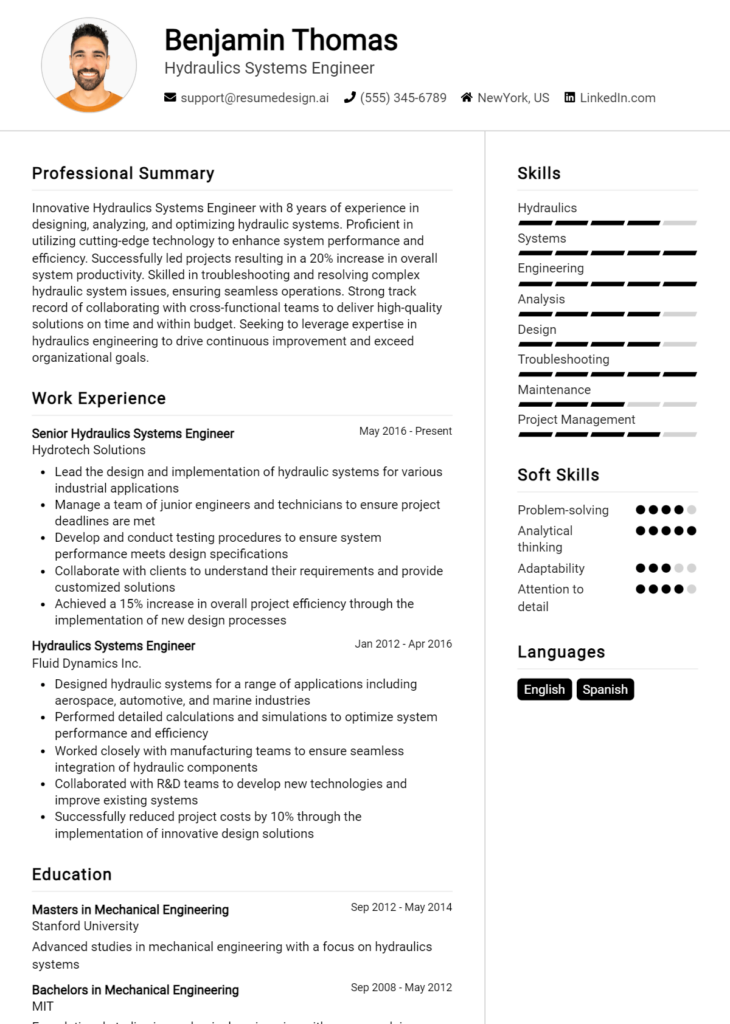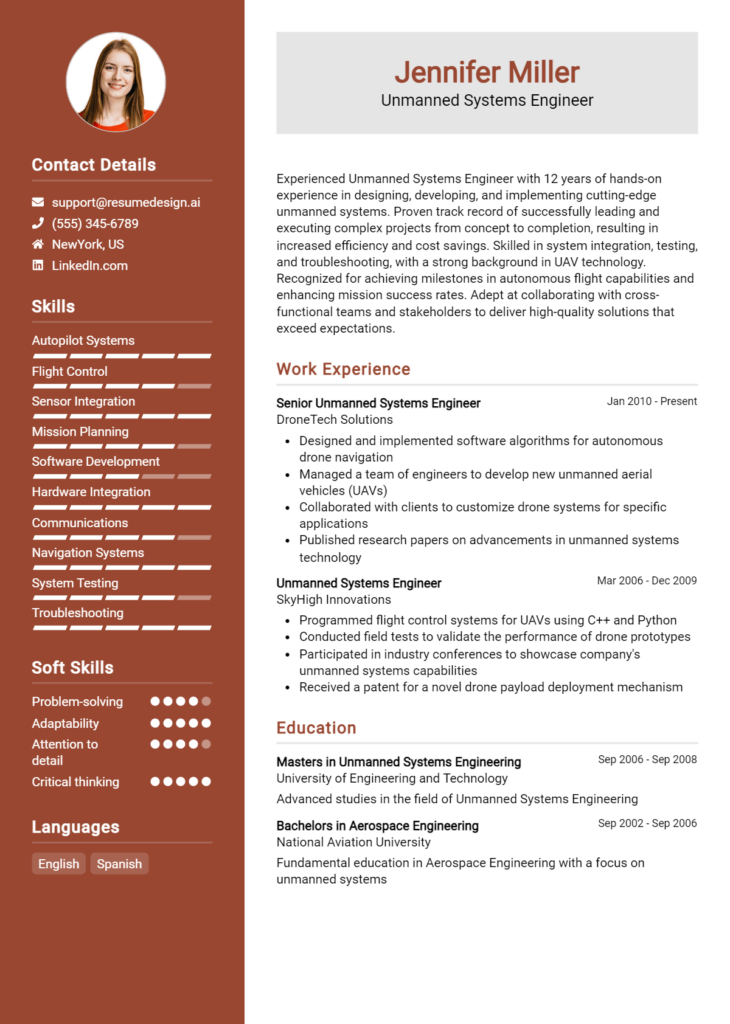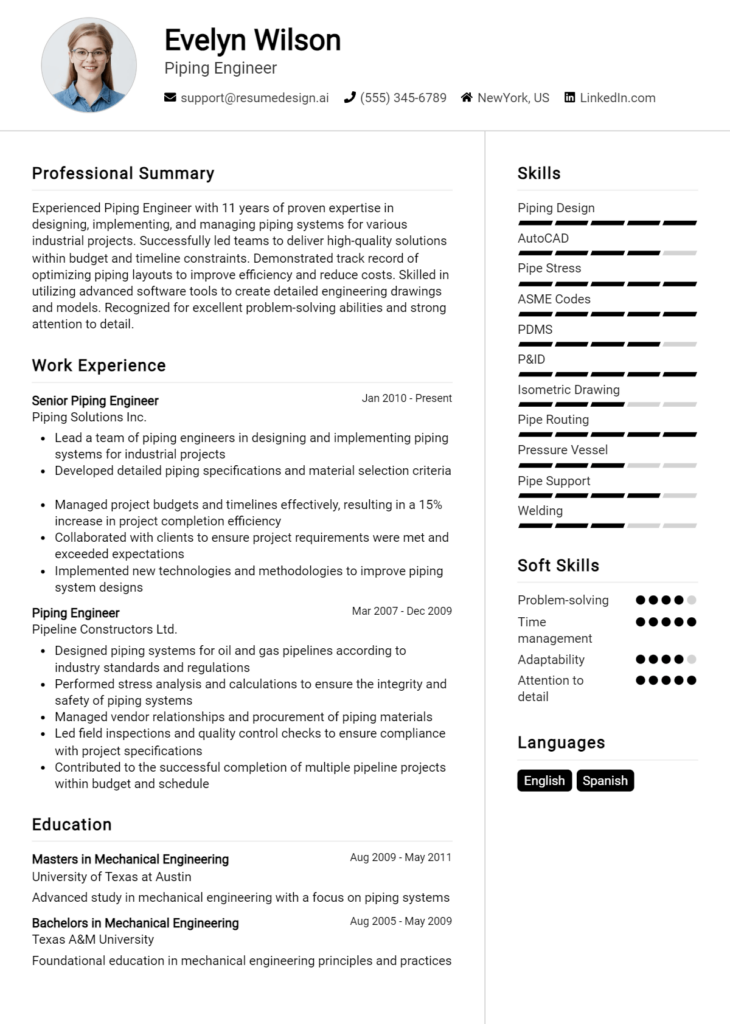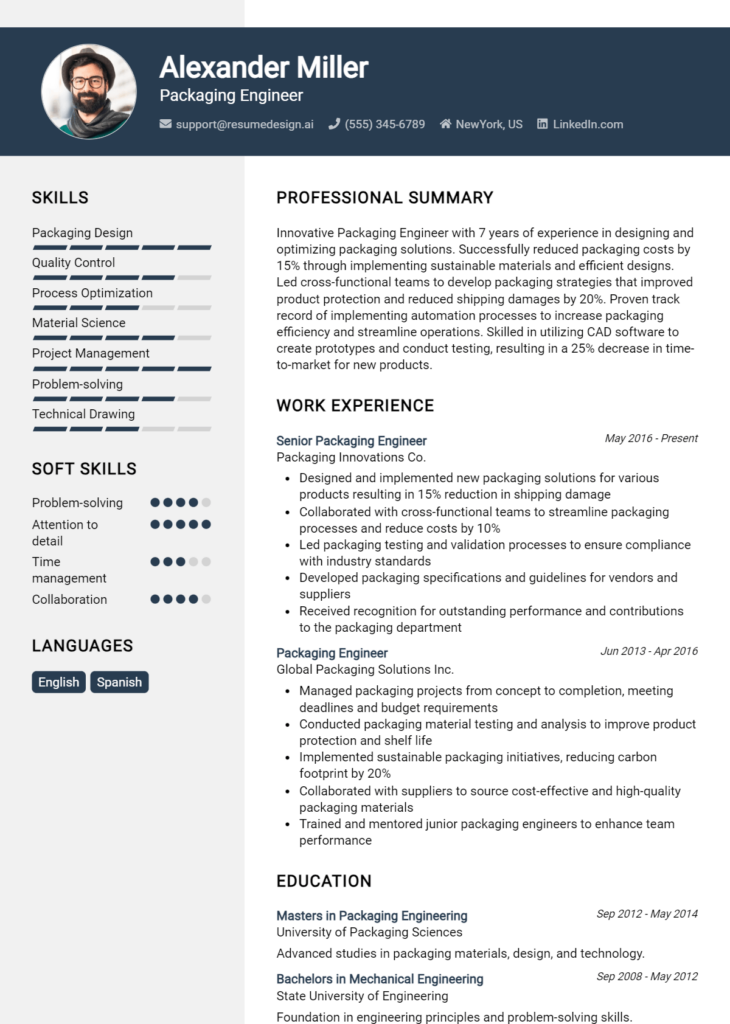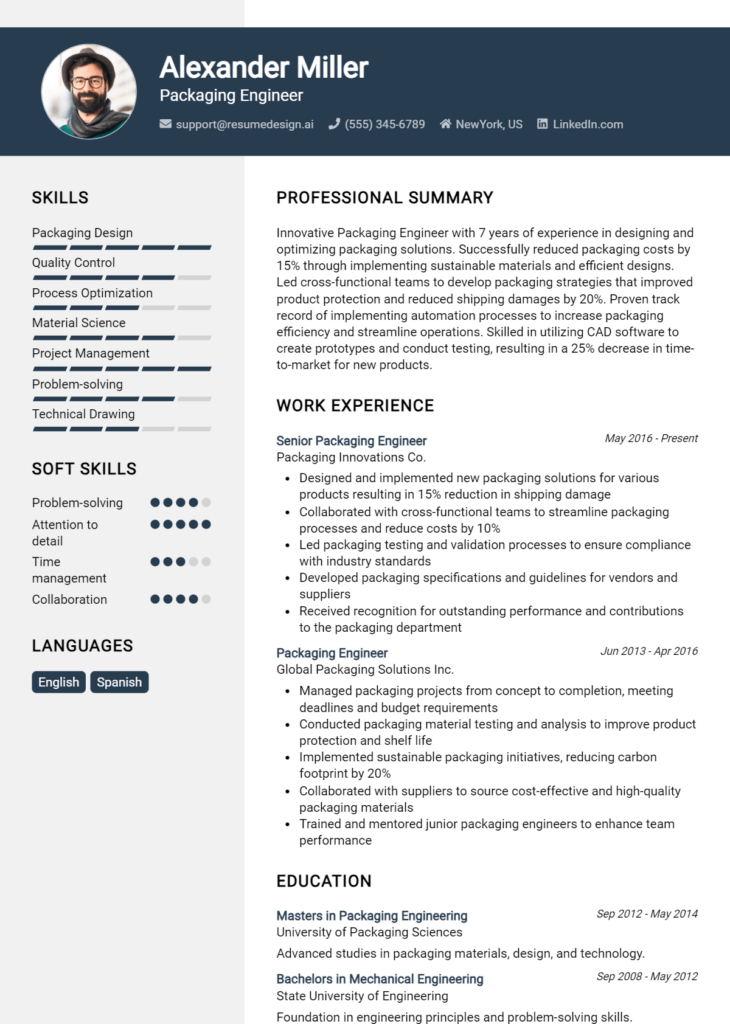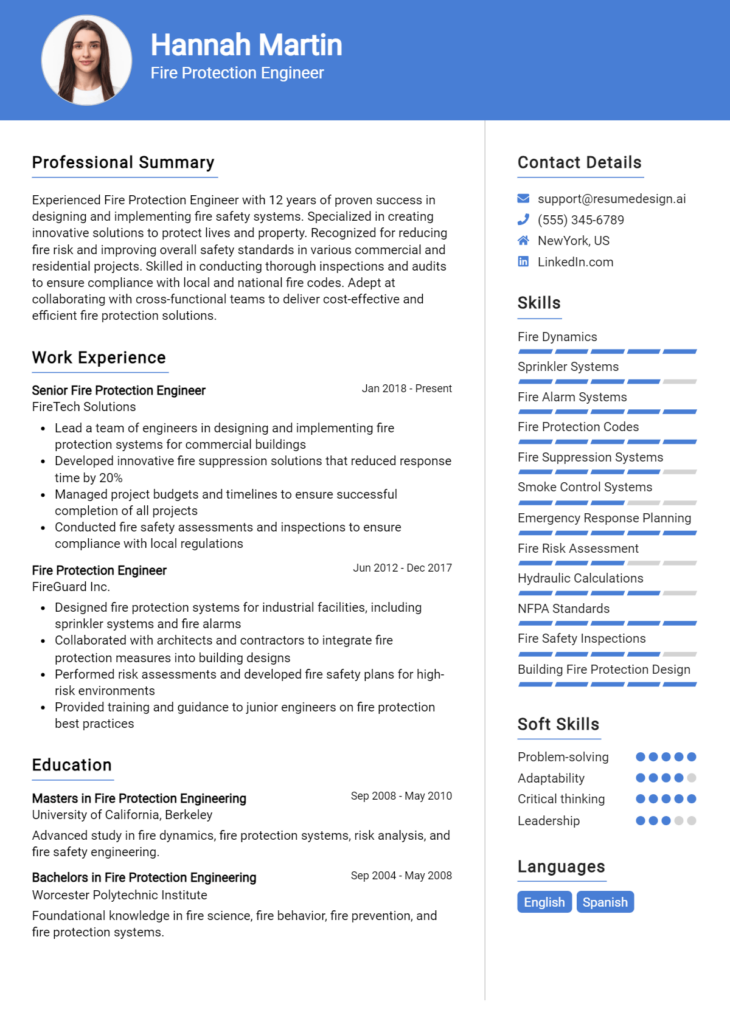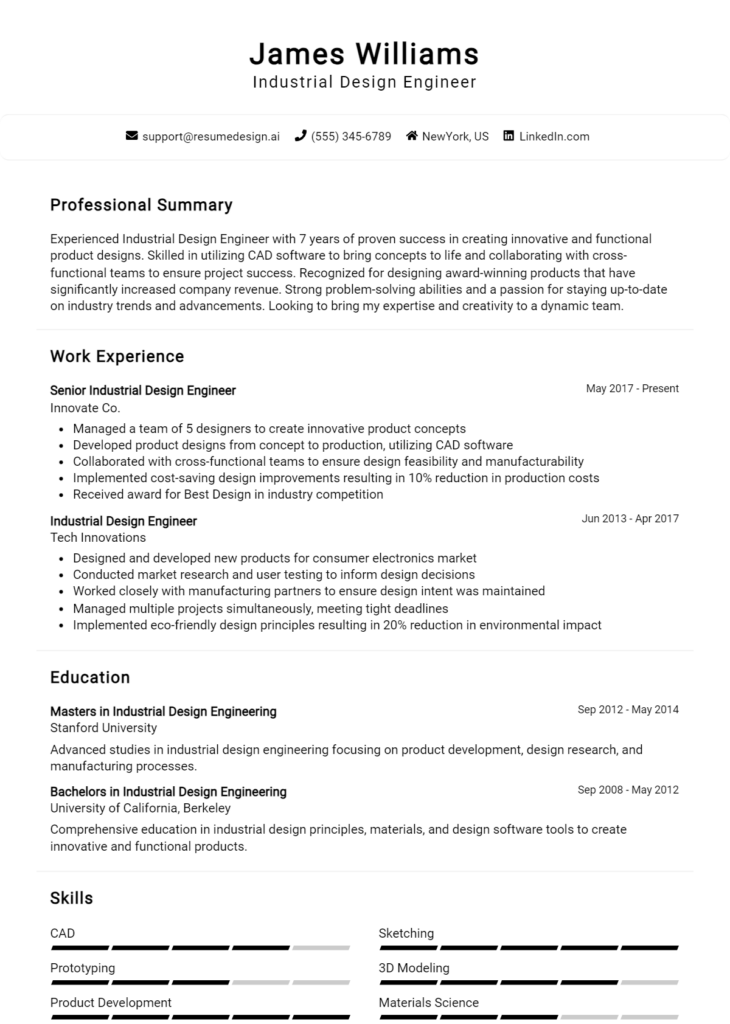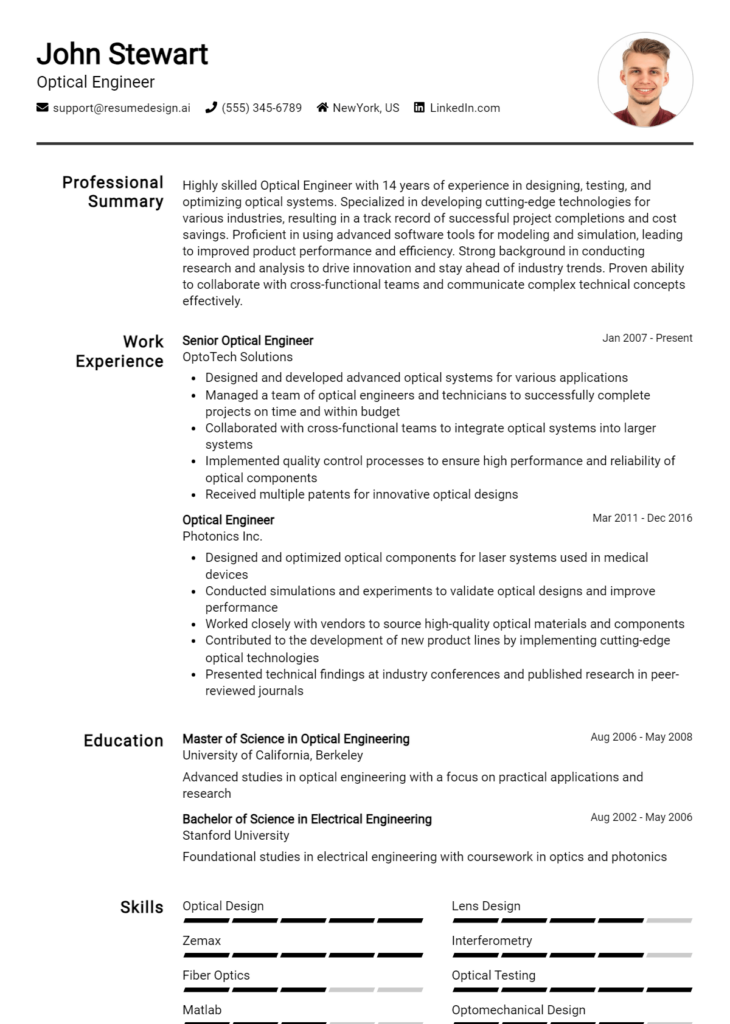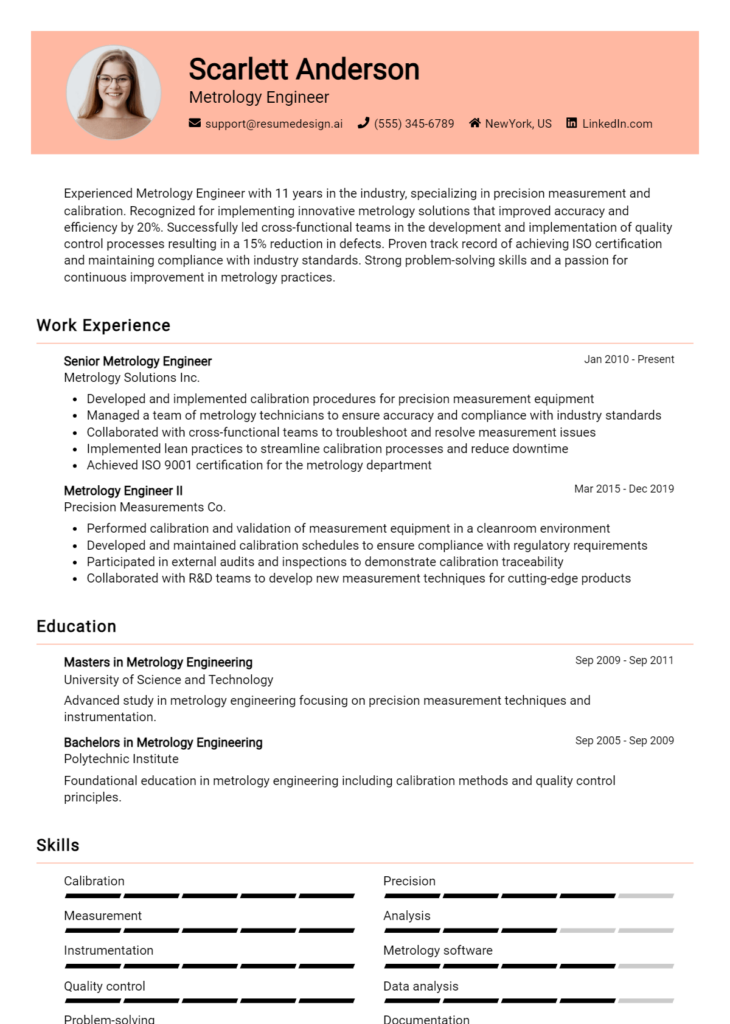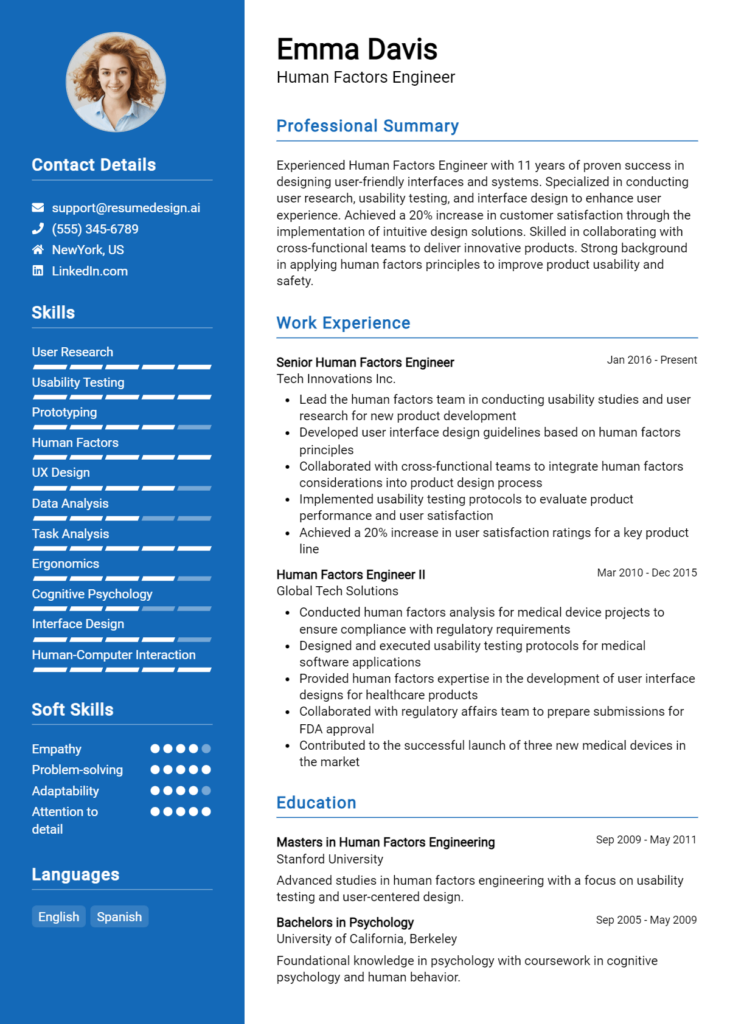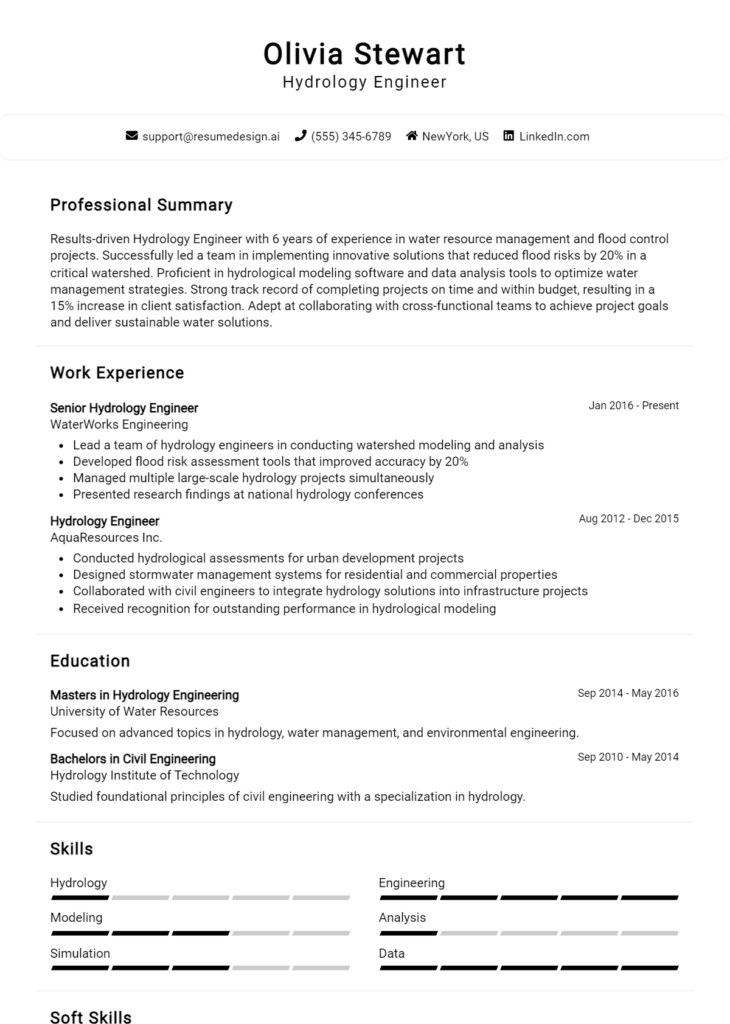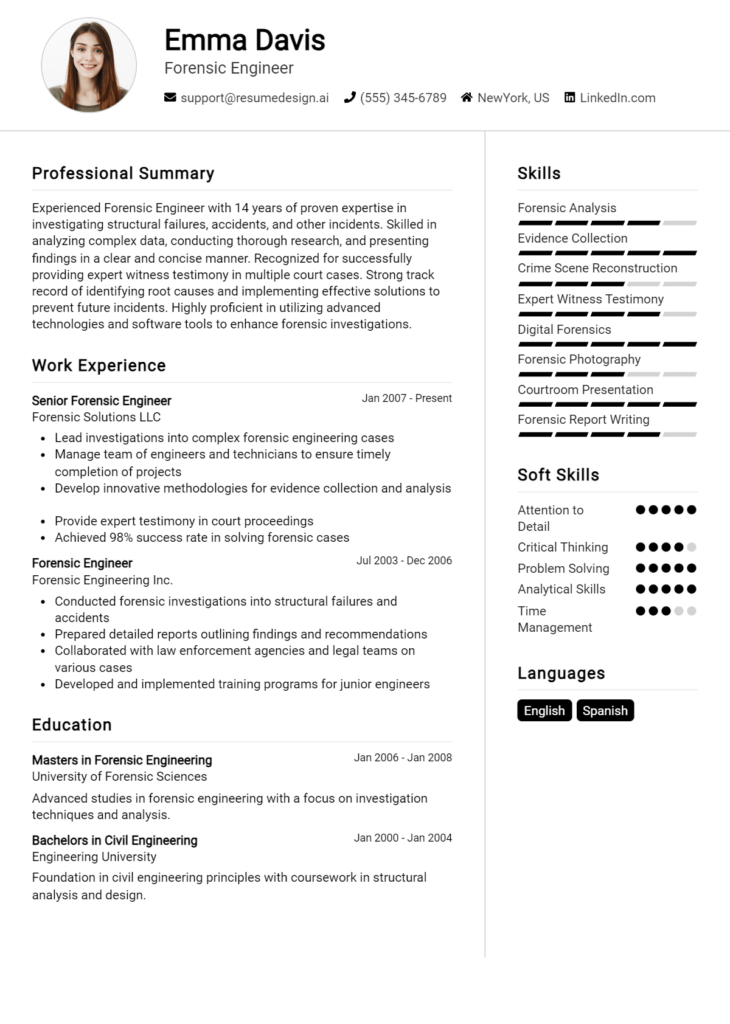Acoustical Engineer Core Responsibilities
Acoustical Engineers play a pivotal role in designing and implementing sound control solutions across various industries. Their core responsibilities include analyzing sound patterns, conducting noise assessments, and collaborating with architects, construction teams, and environmental scientists to develop effective acoustic solutions. Essential skills encompass technical proficiency in acoustics, strong problem-solving capabilities, and operational expertise. These competencies contribute significantly to the organization's goals by ensuring compliance with regulatory standards and enhancing user experience. A well-structured resume can effectively showcase these qualifications, highlighting the engineer's ability to bridge departments and tackle complex acoustic challenges.
Common Responsibilities Listed on Acoustical Engineer Resume
- Conducting acoustic assessments and measurements.
- Designing sound control systems for various environments.
- Collaborating with architects and engineers on construction projects.
- Developing noise mitigation strategies for industrial applications.
- Preparing technical reports and documentation.
- Ensuring compliance with local and national acoustic regulations.
- Utilizing simulation software to model sound propagation.
- Conducting research on new acoustic technologies and materials.
- Providing expert guidance during project planning and execution.
- Participating in client consultations and presentations.
- Managing project timelines and budgets effectively.
High-Level Resume Tips for Acoustical Engineer Professionals
In the competitive field of acoustical engineering, a well-crafted resume is crucial to making a strong first impression on potential employers. Your resume serves as a personal marketing tool, showcasing your unique blend of skills, experiences, and achievements to stand out among other candidates. It is essential that your resume not only highlights your technical expertise but also reflects your contributions to past projects and your understanding of industry standards. This guide will provide practical and actionable resume tips specifically tailored for acoustical engineer professionals, helping you craft a document that captures your qualifications and aligns with job expectations.
Top Resume Tips for Acoustical Engineer Professionals
- Tailor your resume for each job application by aligning your skills and experiences with the specific requirements outlined in the job description.
- Highlight relevant work experience in acoustical engineering, emphasizing projects that demonstrate your capabilities in sound analysis, noise control, or environmental acoustics.
- Quantify your achievements whenever possible; for example, mention the percentage improvement in sound quality or noise reduction achieved through your work.
- Include industry-specific skills such as familiarity with acoustic modeling software, knowledge of building codes, and experience with sound measurement techniques.
- Utilize clear and concise language to describe your responsibilities and accomplishments, avoiding jargon that may not be understood by all hiring managers.
- Incorporate keywords from the job description to enhance your resume’s visibility in Applicant Tracking Systems (ATS).
- Showcase certifications and professional development relevant to acoustical engineering, such as LEED accreditation or membership in professional organizations.
- Consider formatting your resume with clear sections and bullet points for improved readability, allowing hiring managers to quickly scan for critical information.
- Add a summary statement at the top of your resume that encapsulates your professional background and key attributes as an acoustical engineer.
By implementing these tips, you can significantly increase your chances of landing a job in the acoustical engineering field. A well-structured and targeted resume will not only highlight your qualifications but also demonstrate your dedication to the profession, making you a more attractive candidate to potential employers.
Why Resume Headlines & Titles are Important for Acoustical Engineer
In the competitive field of acoustical engineering, a well-crafted resume headline or title can be a game-changer for job seekers. These brief phrases serve as the first impression for hiring managers, immediately capturing their attention and summarizing a candidate's key qualifications in a concise manner. A strong headline not only highlights relevant skills and experiences but also sets the tone for the rest of the resume. Given the technical nature of the role, it is crucial for the headline to be relevant and directly related to the specific job being applied for, allowing candidates to stand out in a crowded applicant pool.
Best Practices for Crafting Resume Headlines for Acoustical Engineer
- Keep it concise—aim for one impactful phrase.
- Use industry-specific terminology to demonstrate expertise.
- Highlight your most relevant skills or achievements.
- Tailor the headline to the specific job description.
- Incorporate quantifiable metrics when possible.
- Use action-oriented language to convey confidence.
- Avoid clichés and generic phrases that lack specificity.
- Make sure it reflects your unique value proposition.
Example Resume Headlines for Acoustical Engineer
Strong Resume Headlines
"Certified Acoustical Engineer with 10+ Years of Experience in Noise Control Solutions"
“Expert in Sound Design and Acoustic Modeling with Proven Project Success”
“Innovative Acoustical Consultant Specializing in Environmental Noise Mitigation”
Weak Resume Headlines
“Engineer Looking for Opportunities”
“Acoustics Professional”
The strong headlines are effective because they are specific, showcasing the candidate's extensive experience and expertise in acoustical engineering. They immediately communicate the value the candidate brings to potential employers, utilizing action-oriented language and quantifiable achievements. In contrast, the weak headlines fail to impress because they are vague and generic, lacking the necessary detail to distinguish the candidate from others. They do not convey any unique strengths or qualifications, making it difficult for hiring managers to see the candidate’s value at a glance.
Writing an Exceptional Acoustical Engineer Resume Summary
A resume summary is a crucial component for an Acoustical Engineer's application, as it serves as the first impression that hiring managers will have of a candidate. A well-crafted summary quickly captures attention by highlighting key skills, relevant experience, and notable accomplishments that align with the job role. It provides a snapshot of the candidate's qualifications and sets the tone for the rest of the resume. Therefore, it is essential for the summary to be concise, impactful, and tailored specifically to the position being applied for, ensuring that it resonates with the needs of the employer.
Best Practices for Writing a Acoustical Engineer Resume Summary
- Keep it concise: Aim for 3-5 sentences that deliver maximum impact.
- Quantify achievements: Use numbers to illustrate successes, such as percentage improvements or project completion timelines.
- Focus on relevant skills: Highlight technical skills and expertise that directly relate to acoustical engineering.
- Tailor to the job description: Customize your summary to reflect the specific requirements and responsibilities of the position.
- Use action verbs: Start sentences with dynamic verbs to convey confidence and proactivity.
- Showcase problem-solving abilities: Mention specific challenges you've addressed and how you overcame them.
- Incorporate industry terminology: Use relevant jargon to demonstrate familiarity with the field.
- Reflect your career goals: Briefly mention your aspirations to align with the company’s mission and values.
Example Acoustical Engineer Resume Summaries
Strong Resume Summaries
Results-driven Acoustical Engineer with over 7 years of experience designing innovative soundproofing solutions, achieving a 30% reduction in noise pollution for urban developments. Proficient in CAD software and acoustic modeling, leading cross-functional teams to successful project completion under budget and ahead of deadlines.
Dynamic Acoustical Engineer specializing in environmental noise control, with a proven track record of reducing noise levels by 25% in industrial facilities. Expert in developing and implementing compliance strategies for state and federal regulations, enhancing project sustainability and community relations.
Detail-oriented Acoustical Engineer with expertise in architectural acoustics, contributing to the design of award-winning concert halls. Successfully collaborated with architects and contractors to optimize sound quality, resulting in a 10% increase in client satisfaction ratings.
Weak Resume Summaries
Acoustical Engineer with experience in various projects. I am a hard worker and always meet deadlines.
I have knowledge of acoustics and have worked in different settings. Looking for opportunities to grow in the field.
The strong resume summaries are considered effective because they provide specific details about achievements, quantify results, and highlight relevant skills that align with the role of an Acoustical Engineer. In contrast, the weak summaries lack specificity and measurable outcomes, making them appear generic and unconvincing. They fail to demonstrate the candidate's unique value or fit for the position, which can hinder their chances of making a positive impression on hiring managers.
Work Experience Section for Acoustical Engineer Resume
The work experience section of an Acoustical Engineer resume is pivotal as it provides a comprehensive view of the candidate's technical skills and practical applications in real-world scenarios. This section not only highlights the candidate's ability to manage teams effectively but also showcases their commitment to delivering high-quality products that meet industry standards. By quantifying achievements and aligning their experiences with recognized benchmarks in the acoustical engineering field, candidates can significantly enhance their appeal to potential employers, illustrating their value and expertise.
Best Practices for Acoustical Engineer Work Experience
- Focus on technical skills relevant to acoustical engineering, such as sound measurement, noise control, and architectural acoustics.
- Quantify achievements with specific metrics, such as percentage improvements in noise reduction or project completion times.
- Highlight collaborative projects that demonstrate your ability to work effectively within multidisciplinary teams.
- Use action verbs to begin bullet points, creating a dynamic and engaging narrative of your professional journey.
- Align your experiences with industry standards and certifications to showcase your commitment to best practices.
- Include relevant technologies and tools you have used, such as CAD software or acoustic modeling programs, to enhance your technical credibility.
- Detail any leadership roles you’ve held to illustrate your ability to guide and mentor other engineers or team members.
- Customize your work experience to reflect the specific requirements of the job you are applying for, ensuring relevance.
Example Work Experiences for Acoustical Engineer
Strong Experiences
- Led a team of 5 engineers to successfully design and implement a noise reduction system for a major urban development project, achieving a 30% decrease in ambient noise levels.
- Developed an acoustic assessment protocol that reduced project costs by 15% while maintaining compliance with local noise ordinances.
- Collaborated with architects and construction teams on a high-profile concert hall project, ensuring optimal sound quality and acoustics, resulting in a 95% satisfaction rating from performers.
- Managed a cross-functional team in the deployment of advanced sound modeling software, improving design accuracy by 25% and reducing project timelines by 10%.
Weak Experiences
- Worked on various engineering projects.
- Assisted in team meetings to discuss acoustical issues.
- Involved in the design of noise barriers but did not contribute significantly.
- Participated in project planning without specific responsibilities or outcomes.
The examples of strong experiences are considered effective because they emphasize quantifiable achievements and specific contributions to projects, showcasing the candidate's technical skills and leadership capabilities. Conversely, the weak experiences lack detail and fail to demonstrate the candidate's impact or involvement in meaningful outcomes, making them less compelling to potential employers.
Education and Certifications Section for Acoustical Engineer Resume
The education and certifications section of an Acoustical Engineer resume is crucial in demonstrating a candidate's academic foundation and specialized knowledge in the field. This section not only showcases the candidate's degree and any relevant coursework but also highlights industry-recognized certifications and continuous learning efforts. By providing details about their educational background and qualifications, candidates can enhance their credibility and show their commitment to staying current with industry standards, thereby aligning their qualifications with the specific requirements of the job role.
Best Practices for Acoustical Engineer Education and Certifications
- Prioritize degrees relevant to acoustics, engineering, or environmental science.
- Include certifications from recognized industry bodies such as the Institute of Noise Control Engineering (INCE) or the Acoustical Society of America (ASA).
- Use specific course titles that align with acoustical engineering principles, such as 'Architectural Acoustics' or 'Vibrations Control.'
- Highlight any specialized training or workshops attended that pertain to current technologies and methodologies in acoustics.
- List certifications in a clear format, including the issuer and date obtained for clarity.
- Use bullet points for easy readability, focusing on the most relevant qualifications.
- Include any ongoing education or professional development courses to demonstrate a commitment to continuous learning.
- Be concise but detailed enough to convey the significance of each qualification.
Example Education and Certifications for Acoustical Engineer
Strong Examples
- Bachelor of Science in Acoustical Engineering, University of California, 2019
- Certified Acoustical Consultant (CAC), Institute of Noise Control Engineering, 2021
- Relevant Coursework: Architectural Acoustics, Environmental Noise Control, Signal Processing for Acoustics
- OSHA Safety Training Certification, 2022
Weak Examples
- Bachelor of Arts in Sociology, University of Texas, 2018
- Certification in General Project Management, 2019
- High School Diploma, 2015
- Basic Computer Skills Course, 2020
The strong examples are considered effective because they directly relate to the field of acoustical engineering and provide specific, relevant qualifications that enhance the candidate's profile. In contrast, the weak examples lack relevance to the acoustical engineering discipline and do not demonstrate the specialized knowledge or skills required for the role, thus failing to support the candidate's candidacy effectively.
Top Skills & Keywords for Acoustical Engineer Resume
As an Acoustical Engineer, showcasing the right skills on your resume is crucial for standing out in a competitive job market. This role requires a blend of technical expertise and interpersonal abilities to design, analyze, and implement solutions that manage sound and vibration. Highlighting both hard and soft skills effectively conveys your qualifications and suitability for the job. Employers seek candidates who not only possess the necessary technical knowledge but also demonstrate strong communication, teamwork, and problem-solving abilities. By emphasizing these skills, you can create a well-rounded resume that captures the attention of hiring managers.
Top Hard & Soft Skills for Acoustical Engineer
Soft Skills
- Effective communication
- Team collaboration
- Critical thinking
- Problem-solving
- Attention to detail
- Time management
- Creative thinking
- Adaptability
- Client relations
- Project management
Hard Skills
- Acoustic modeling and simulation
- Noise control engineering
- Sound measurement techniques
- Environmental acoustics
- Architectural acoustics
- Vibration analysis
- Digital signal processing (DSP)
- Building code knowledge
- Use of acoustical software (e.g., AutoCAD, EASE)
- Knowledge of materials and their acoustic properties
For more insights into essential skills, visit our skills page. Additionally, consider how your work experience can complement these skills to further enhance your resume.
Stand Out with a Winning Acoustical Engineer Cover Letter
Dear [Hiring Manager's Name],
I am writing to express my interest in the Acoustical Engineer position at [Company Name] as advertised on [Where You Found the Job Posting]. With a Master’s degree in Acoustical Engineering and over five years of experience in designing and implementing noise control solutions for various projects, I am enthusiastic about the opportunity to contribute to your team. My background in both architectural acoustics and environmental noise management has equipped me with a comprehensive understanding of sound control principles and the ability to apply them effectively in real-world scenarios.
During my tenure at [Previous Company Name], I successfully led a project to reduce noise pollution in a densely populated area while collaborating closely with urban planners and local stakeholders. My hands-on experience with advanced simulation software, such as EASE and ODEON, enabled me to create accurate models that informed our design choices, resulting in a 30% reduction in noise levels as measured post-implementation. Additionally, my commitment to sustainability drives me to seek innovative solutions that not only meet regulatory standards but also enhance the quality of life for communities.
I am particularly drawn to [Company Name] due to its commitment to cutting-edge acoustical design and its impressive portfolio of projects that prioritize environmental stewardship. I am eager to bring my expertise in noise assessment, sound insulation, and acoustic treatment to your team. I am confident that my proactive approach and strong analytical skills will contribute to the success of your upcoming projects and help maintain the high standards that [Company Name] is known for.
Thank you for considering my application. I am excited about the possibility of discussing how my background, skills, and enthusiasms align with the needs of your team. I look forward to the opportunity for an interview to further explore how I can contribute to [Company Name]'s continued success.
Sincerely,
[Your Name]
[Your Contact Information]
Common Mistakes to Avoid in a Acoustical Engineer Resume
When crafting a resume for an Acoustical Engineer position, it's crucial to present your skills and experiences effectively to stand out in a competitive field. However, many applicants make common mistakes that can detract from their qualifications and reduce their chances of landing an interview. Avoiding these pitfalls can significantly enhance the clarity and professionalism of your resume, ensuring that your expertise in acoustics shines through.
Lack of Specificity: Failing to include specific details about your projects and accomplishments can make your experience seem vague. Use quantitative metrics to highlight your contributions, such as noise reduction percentages or successful project completions.
Ignoring Keywords: Many companies use Applicant Tracking Systems (ATS) to filter resumes. Not incorporating relevant industry-specific keywords may lead to your resume being overlooked, even if you possess the necessary skills.
Overloading with Technical Jargon: While technical terminology is important in acoustical engineering, excessive jargon can alienate non-technical reviewers. Strive for a balance that showcases your expertise while remaining accessible.
Neglecting Soft Skills: While technical skills are essential, soft skills such as communication, teamwork, and problem-solving are equally important. Failing to highlight these can give an incomplete picture of your abilities.
Poor Formatting: A cluttered or unprofessional layout can detract from your resume’s readability. Stick to a clean, organized format that allows hiring managers to easily navigate your qualifications.
Not Tailoring the Resume: Sending out the same generic resume for every application can be detrimental. Tailor your resume to each job description, emphasizing the most relevant experiences and skills that align with the specific role.
Omitting Relevant Certifications: Certifications in acoustics or related fields can set you apart from other candidates. Be sure to include any licenses or certifications you have that are pertinent to the role.
Failing to Proofread: Spelling and grammatical errors can undermine your professionalism. Take the time to thoroughly proofread your resume or have someone else review it to catch any mistakes before submission.
Conclusion
As we explored the essential skills and responsibilities of an Acoustical Engineer, it's clear that this role requires a unique blend of technical expertise, creativity, and problem-solving abilities. Key areas of focus include sound insulation, noise control, and environmental acoustics, all of which are crucial for creating spaces that are not only functional but also comfortable and pleasant for occupants.
An effective Acoustical Engineer must possess strong analytical skills and a solid understanding of acoustical principles, as well as proficiency in using specialized software and tools for modeling and analysis. Additionally, communication skills are vital for collaborating with architects, contractors, and clients to ensure that acoustic designs meet project requirements and regulatory standards.
To advance your career as an Acoustical Engineer, it's important to present yourself effectively on paper. Now is the perfect time to review your resume and ensure it reflects your skills, experiences, and accomplishments in this specialized field. Take advantage of available resources to enhance your job application materials. Explore resume templates to find a style that suits you, utilize the resume builder to craft a professional document, and look at resume examples for inspiration. Don't forget to complement your resume with a compelling cover letter—check out the cover letter templates available to make a strong impression.
Take action today and elevate your presentation in the competitive job market for Acoustical Engineers!

